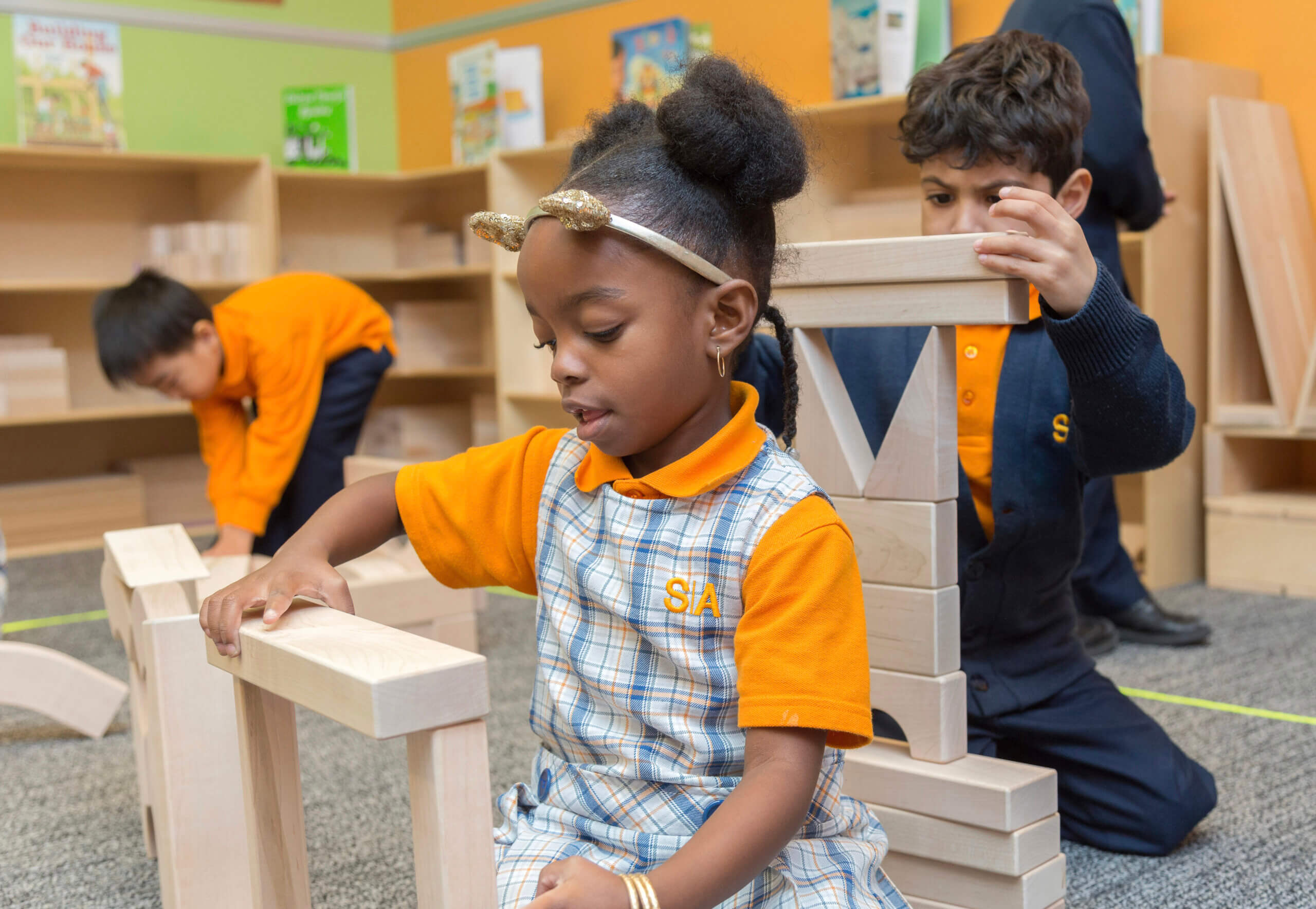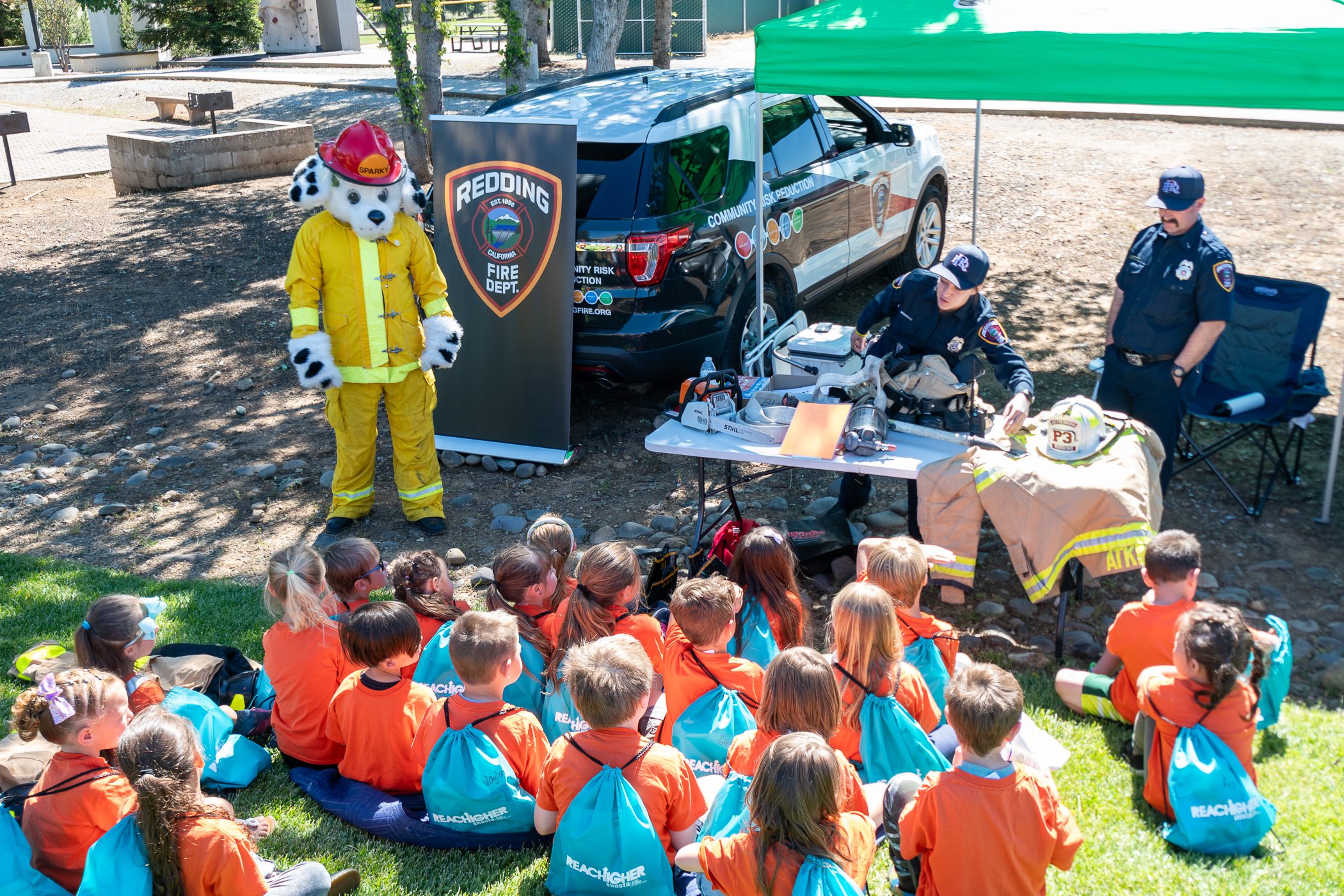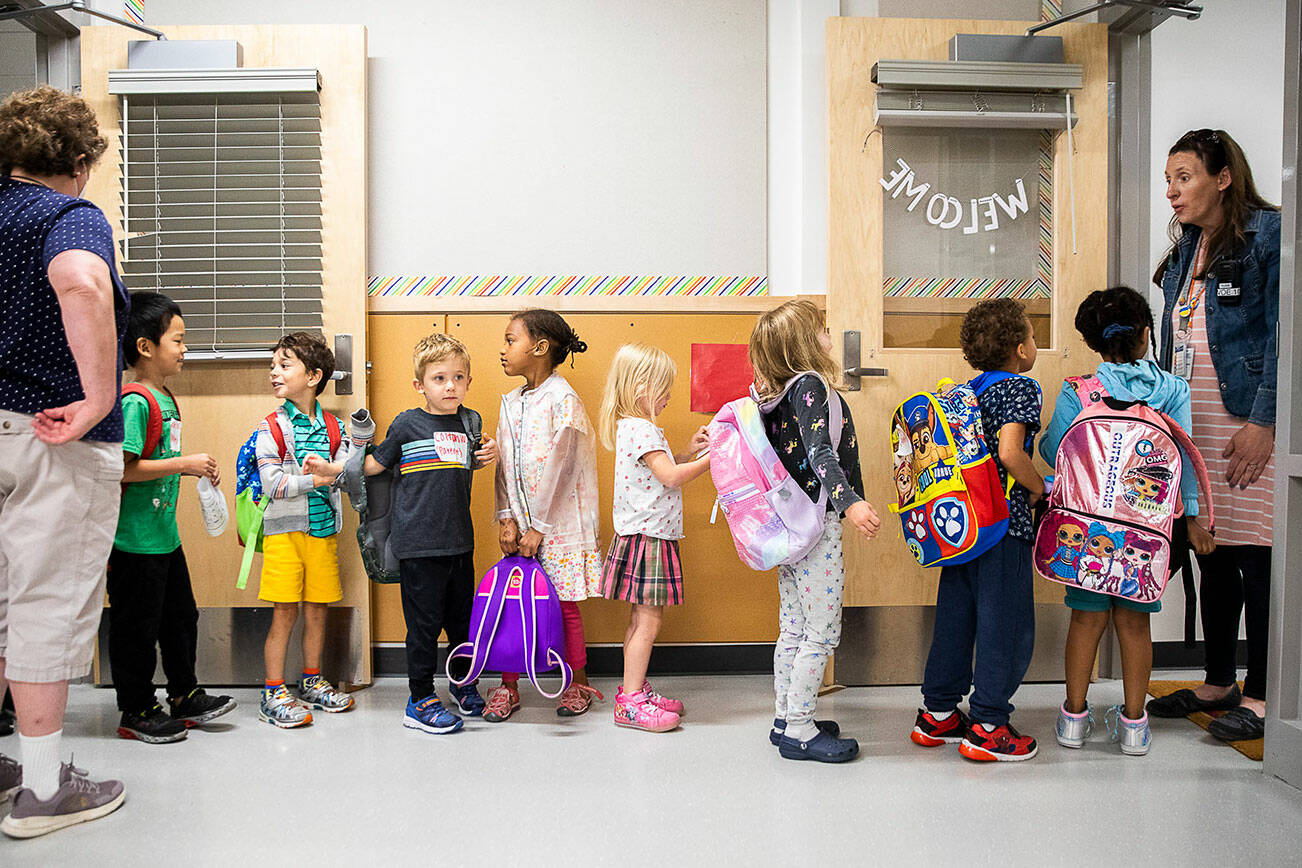The Significance of Interactive Tasks in Elementary School Education
Interactive tasks play an important function in elementary school education and learning. They involve pupils and improve finding out results. With team projects and hands-on experiments, students experience the product in a useful way. This technique accommodates varied knowing styles and advertises vital abilities. The benefits extend beyond academics. Checking out the much deeper impact of these tasks exposes their importance fit young students' futures. What changes occur when trainees proactively get involved?
Enhancing Interaction With Interactive Discovering
Traditional training methods have their merits, interactive knowing greatly enhances pupil engagement in quality school education. This strategy encourages active engagement, allowing students to submerse themselves in the discovering process. By making use of group activities, hands-on experiments, and technology-driven sources, teachers develop a setting where students feel extra attached to the product.
Interactive learning helps with collaboration amongst peers, fostering interaction skills and team effort. It likewise accommodates diverse discovering designs, making sure that visual, acoustic, and kinesthetic learners can all thrive. In addition, trainees are more probable to preserve details when they proactively participate, rather than passively obtaining understanding.
This dynamic approach not just makes discovering enjoyable however additionally instills a sense of possession in students concerning their educational journey. As they involve with the web content, their interest and motivation to discover rise, laying a strong foundation for future academic success.
Creating Vital Assuming Abilities
Interactive learning not just boosts involvement however additionally serves as a catalyst for developing vital thinking skills in grade institution students. Via activities such as problem-based discovering, discussions, and hands-on experiments, pupils are urged to evaluate info, evaluate various viewpoints, and formulate reasoned conclusions. These interactive experiences call for pupils to question assumptions, leading them to believe more deeply about different subjects.

Furthermore, interactive tasks often present real-world circumstances that challenge pupils to apply their knowledge creatively. By navigating through these obstacles, they discover to recognize relevant info and make informed decisions. This procedure promotes not only individual critical reasoning however likewise encourages students to articulate their believed procedures, enhancing their ability to connect successfully. Therefore, interactive knowing environments grow a generation of important thinkers that are better prepared to take on complex problems in their future scholastic and specialist endeavors.
Cultivating Collaboration Amongst Peers
Promoting cooperation among peers is crucial in elementary school education, as it improves teamwork and communication skills. Taking part in group tasks aids trainees build count on and respect for each other, preparing for reliable partnership. Additionally, problem-solving together allows students to pick up from each other and create a cumulative technique to challenges.
Team Effort and Communication Skills
Effective synergy and interaction skills are crucial parts of a successful elementary school education and learning. Engaging in interactive tasks encourages students to team up, share concepts, and address troubles together. Such experiences advertise the growth of essential communication capabilities, enabling kids to reveal their thoughts clearly and listen actively to others. Through synergy, trainees discover to value varied perspectives, cultivating a sense of area and shared duty. Structured team tasks, whether in academics or creative projects, enhance peer interactions, showing youngsters just how to work out functions and resolve conflicts. These skills not just contribute to a favorable class atmosphere however additionally prepare trainees for future collective ventures in higher education and the work environment. Generally, teamwork and communication are foundational to all natural advancement in quality institution.
Building Count On and Respect
Building trust fund and respect among peers serves as a keystone for effective collaboration in elementary school environments. When trainees feel valued and respected by their schoolmates, they are a lot more likely to engage actively in team activities. Interactive tasks, such as team projects and cooperative video games, provide chances for trainees to pick up from each other, fostering a feeling of neighborhood. This environment urges open communication, allowing pupils to share their concepts and point of views without concern of judgment. As count on constructs, students end up being extra happy to share duties and support each other's knowing. Inevitably, cultivating an atmosphere of trust and respect improves not just academic end results yet likewise social advancement, furnishing trainees with crucial social abilities for their future endeavors.
Problem-Solving With each other
Collaborative analytical involves pupils in essential thinking and synergy, essential abilities for their personal and academic development. When students collaborate to deal with difficulties, they find out to interact efficiently, regard varied viewpoints, and leverage each various other's toughness. This process enhances their ability to examine troubles from various angles and develop creative solutions. Team activities, such as scientific research experiments or math difficulties, promote active engagement and foster a sense of community. As students work together, they likewise develop social skills, discovering to compromise and negotiate, which are important for future interactions. Inevitably, analytical together cultivates an encouraging learning environment, encouraging trainees to take possession of their education and learning while preparing them for collective ventures past the classroom.
Motivating Creative Thinking and Innovation
Urging creative thinking and innovation in elementary school education can be significantly boosted via hands-on knowing experiences. These activities allow pupils to involve directly with concepts and materials, fostering creative thinking. Furthermore, joint team projects can boost varied ideas and solutions, better nurturing an imaginative environment.
Hands-On Understanding Knowledge
A wide variety of hands-on understanding experiences substantially improves creativity and technology in elementary school education and learning. Involving students in sensible activities permits them to apply theoretical expertise in real-world contexts, fostering deeper understanding. By manipulating tools and products, kids establish crucial analytical abilities and discover to believe outside the box. These experiences inspire interest and encourage trainees to explore their passions better. Additionally, hands-on activities can connect various topics, connecting science, art, and math in significant ways. This interdisciplinary strategy encourages pupils to see connections and assume creatively. Eventually, hands-on discovering experiences nurture a generation of pioneers, click this equipping them with the skills and self-confidence required to take on future challenges and add to society in special ways.
Collaborative Team Projects
Hands-on discovering experiences naturally bring about the incorporation of joint team tasks, which play an important function in cultivating creative thinking and development in quality school education and learning. These tasks urge trainees to function with each other, sharing ideas and point of views, which boosts problem-solving skills and important thinking. With partnership, trainees find out to connect efficiently and respect diverse viewpoints, important abilities for their future. Additionally, group projects offer chances for trainees to experiment with different duties, increasing their versatility and self-confidence. Taking part in this participating setting allows go to website them to discover their creative thinking, pressing the limits of typical understanding. Eventually, collective group projects not just improve the instructional experience yet also prepare pupils for real-world difficulties that need teamwork and ingenious reasoning.
Building Self-confidence and Freedom
As trainees participate in interactive activities, they commonly find possibilities to develop self-confidence and freedom. These tasks, whether they include hands-on projects, role-playing, or analytic jobs, motivate trainees to take campaign and express their ideas freely. By taking part in such experiences, pupils learn to trust their capacities and make decisions without depending entirely on assistance from peers or teachers.
Additionally, interactive tasks cultivate a feeling of ownership over learning. They create vital believing skills and strength when students deal with obstacles collaboratively or separately. This procedure not just boosts their understanding of the subject yet likewise empowers them to take risks in their understanding journey.
As they browse numerous interactive circumstances, students progressively shed their self-doubt, leading the way for raised self-confidence - Private School. Inevitably, these activities play a necessary role in nurturing certain and independent students, equipped to deal with future scholastic and personal obstacles
Creating a Positive Classroom Setting
While cultivating a favorable class environment is essential for reliable discovering, it needs willful initiative from educators to develop an area where trainees really feel risk-free, recognized, and engaged. A positive environment motivates partnership, enabling trainees to express themselves without worry of judgment.
Educators can accomplish this by establishing clear expectations, promoting shared regard, and acknowledging specific payments. Incorporating interactive tasks additionally enhances interaction, making finding out more satisfying and dynamic.
Additionally, a caring atmosphere sustains social-emotional growth, as pupils discover to navigate relationships and solve problems. Teachers play an essential function in modeling favorable actions and strengthening a society of generosity and inclusivity.
Often Asked Concerns

How Can Parents Support Interactive Learning in the house?
Parents can support interactive discovering at home by offering interesting materials, encouraging hands-on projects, integrating instructional games, fostering discussions, and creating a nurturing setting that promotes inquisitiveness and exploration in their children's learning experiences. (Private Grade School Peoria)
What Kinds of Interactive Activities Are Many Efficient?
Hands-on projects, collective games, role-playing circumstances, and instructional modern technology applications are amongst one of the most reliable interactive tasks. These engage trainees, boost crucial thinking abilities, and advertise synergy, ultimately promoting a much deeper understanding of various subjects.
Just How Do Interactive Activities Deal With Different Discovering Styles?
Interactive activities involve visual, auditory, and kinesthetic learners by browse around here including diverse approaches. These activities assist in recognizing via hands-on experiences, collaborative discussions, and visual help, allowing students to absorb info according to their preferred discovering design.
What Are the Prices Related To Executing Interactive Tasks?

Implementing interactive activities incurs costs such as materials, training for teachers, innovation upgrades, and possible center modifications. Budget plan constraints can also affect the regularity and selection of activities used to pupils in educational setups.
Exactly How Can Educators Analyze the Effect of Interactive Understanding?
Educators can evaluate the impact of interactive knowing through observations, student comments, efficiency metrics, and relative evaluation of examination ratings prior to and after application, making certain a complete understanding of engagement and understanding retention enhancements.
Through tasks such as problem-based understanding, discussions, and hands-on experiments, students are motivated to evaluate information, review various point of views, and develop reasoned verdicts. Interactive tasks frequently existing real-world situations that challenge trainees to apply their understanding creatively. Engaging in interactive activities motivates trainees to work together, share ideas, and solve issues with each other. Interactive tasks, such as team projects and participating games, provide possibilities for students to find out from one another, fostering a feeling of area. As pupils involve in interactive tasks, they frequently discover opportunities to build self-confidence and self-reliance.